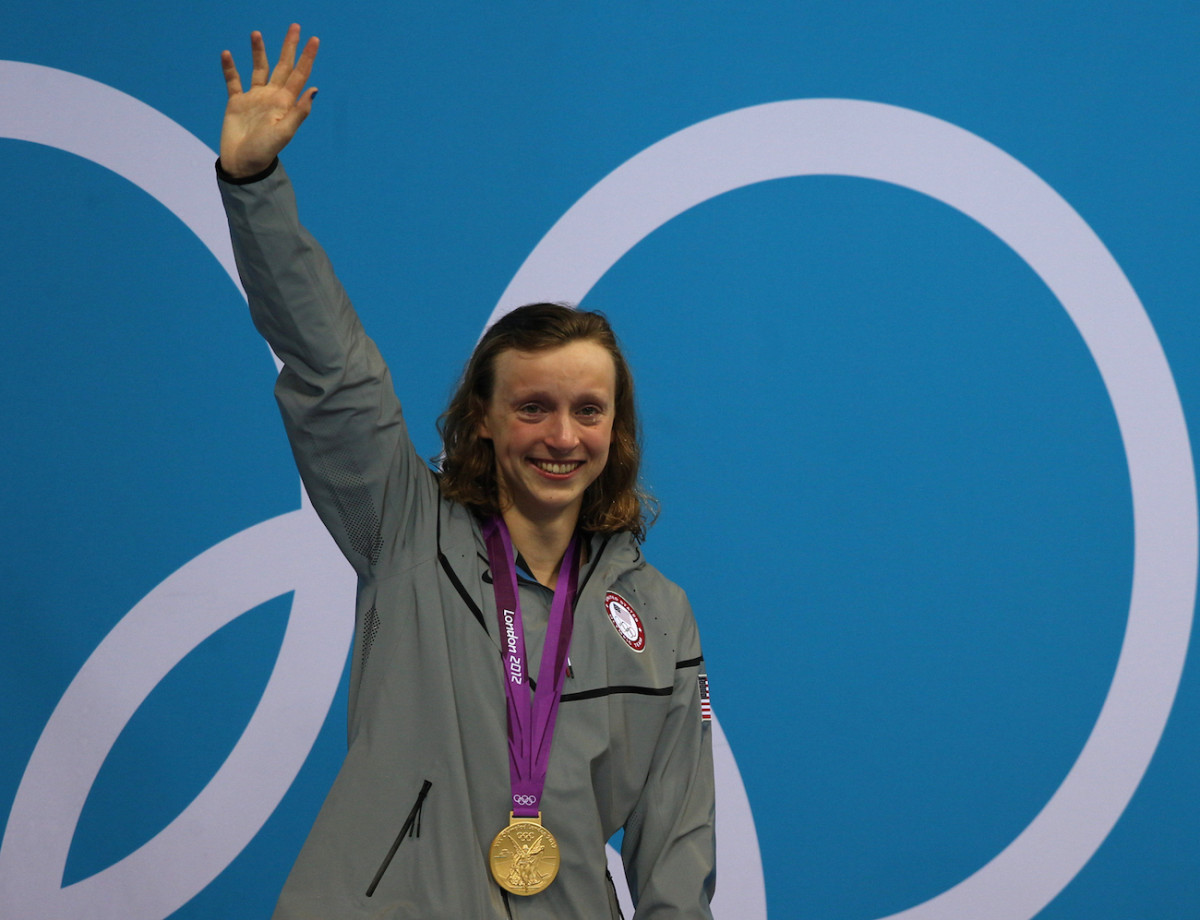Swimmer Katie Ledecky Talks Training, Olympic Experience, and Refueling

Katie Ledecky is a 15-time world champion and five-time Olympic gold medalist. She recently competed at the FINA World Championships in Gwangju, South Korea, where she took home gold in the 800-meter freestyle, as well as silver in the 400-meter freestyle and the 4x200-meter freestyle relay—all while sick! One year out from the 2020 Olympics in Tokyo, she gave us the rundown on her training, her Olympic experiences, and her favorite way to refuel after races.
I have to have to ask: How are you feeling? Is everything back on track after worlds?
Yeah, everything is back on track. I’m feeling a lot better—good to be stateside and happy to be home after the world championships.
Is training back where it was before you fell ill?
Well, I’m taking a really short break from training coming off of worlds that I would have taken regardless of how the competition went. I’m getting ready and making sure I’m healthy and really rested and prepared to get back in to training because it’s a really big year for us.
Training for the 200 meters and the 1,500 meters is vastly different. How do you train for two such different events?
As you said, I’m training for a race that’s just under two minutes and a race that’s over 15 minutes. I leave it up to my coach, but I have different focuses for each workout. I’m training for different events each time I get in the water, as a sprinter one day and as a distance swimmer the next day— but when it comes down to it, I’m just working hard and putting in the work and the mileage. I know I need to have that really great endurance and aerobic base that I have. I’m always finding new ways to improve my speed, whether it’s getting better at kicking or whether it’s working on the front half of races, the starts, the turns, or the little things that can make a tenth of a second difference in those shorter races where it’s so critical.

So, one day you might work on the shorter events, and then the next day you might work on long events? There’s no mixing it up?
I mean, I think training just in general helps all of my events. For example, I train 10 times a week in the water, so multiple days a week I have two practices a day. On a Tuesday I might be doing more distance work in the morning—pace work for the 1,500—and then in the evening, I’ll be doing shorter stuff focused more on the 100 or 200 free, where I’m getting up and really racing at that speed.
If you’re in the pool twice a day, you’re obviously burning a lot of calories. What is an average refueling session like for you? What are your meals like every single time you get in and out of the pool?
I always have chocolate milk after my workout or race, so that’s the one thing that’s always consistent. I actually just teamed up with the Built With Chocolate Milk team and made chocolate milk my official partner in my journey for this next year. Apart from that, I’m eating really well, just being careful about everything that I’m putting in my body and resting, taking naps, getting a lot of sleep at night. Those are all the things I focus on outside the water that I think are really important when I’m trying to find a tenth of a second or more in my races
You were 15 years old when you made your Olympic debut in 2012. How did your mentality change going into your second Olympics, and how do you think it’s evolved from 2012 to now?
[Those are] different chapters of my journey, but at the same time there have been some similarities. I was 15 when I qualified for the London Olympics, and that [was] a little unexpected, so I got to the Olympics and took in every second of it. I went to the opening ceremony; watched all the races; really felt honored to be a part of a team with some legends in our sport and people that I looked up to while growing up. And then in Rio, I qualified for many more events than I qualified for compared to London, so I was much busier and I had to focus on each race one at a time. That was still a lot of fun, and I still pinched myself again that I was at the Olympics, at that level. Now moving into 2020, I again expect to make the team and I’m hopeful that I’ll be there in Tokyo. I’ll have to get through our highly competitive Olympic trials. It’s no easy feat to qualify for the Olympics in the United States as a swimmer, so that’s the first step along the journey.
Catherine Ivill/Getty Images (main photo); Tim Clayton/Corbis via Getty Images (medal photo)
